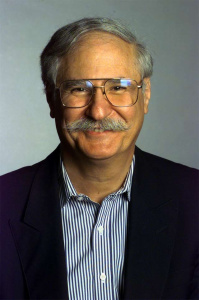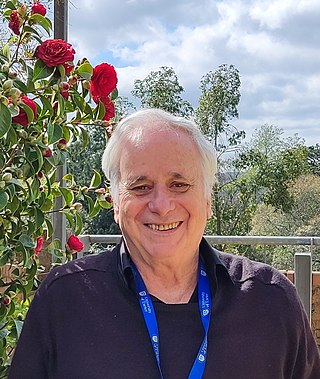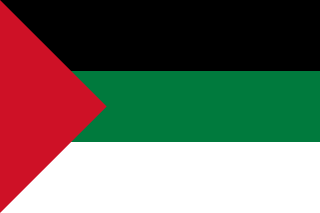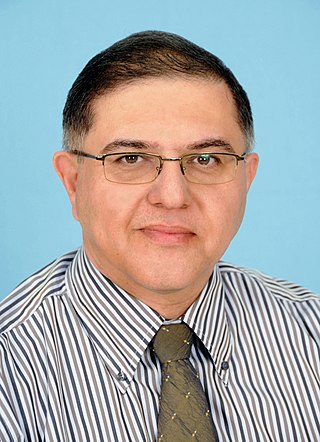
The Arab world, formally the Arab homeland, also known as the Arab nation, the Arabsphere, or the Arab states, comprises a vast group of countries, mainly located in Western Asia and Northern Africa. While the majority of people in the Arab world are ethnically Arab, there are also significant populations of other ethnic groups such as Berbers, Kurds, Somalis and Nubians, among other groups. Arabic is used as the lingua franca throughout the Arab world.

Efraim Karsh is an Israeli and British historian who is the founding director and emeritus professor of Middle East and Mediterranean Studies at King's College London. Since 2013, he has served as professor of political studies at Bar-Ilan University. He is also a principal research fellow and former director of the Middle East Forum, a Philadelphia-based think tank. He is a vocal critic of the New Historians, a group of Israeli scholars who have questioned the traditional Israeli narrative of the Arab–Israeli conflict.

Samih K. Farsoun was a professor emeritus of sociology at American University, where he taught for thirty years until his retirement in 2003. He graduated from Hamilton College in New York. He received a master's degree in 1961 and a PhD in 1971, both in sociology from the University of Connecticut. He died June 9 of a heart attack while on a walk with his wife in New Buffalo, Michigan. He was a resident of Florida and Washington, D.C. During his career at AU, Farsoun served as chairman of the Department of Sociology for eleven years, chairman and member of numerous university-wide committees. He also established the Arab Studies minor in the Sociology department in 2001.

Ilan Pappé is an Israeli historian and political scientist. He is a professor with the College of Social Sciences and International Studies at the University of Exeter in the United Kingdom, director of the university's European Centre for Palestine Studies, and co-director of the Exeter Centre for Ethno-Political Studies.
Mark Andrew LeVine is an American historian, musician, writer, and professor. He is a professor of history at the University of California, Irvine.

The Institute for Palestine Studies (IPS) is the oldest independent nonprofit public service research institute in the Arab world. It was established and incorporated in Beirut, Lebanon, in 1963 and has since served as a model for other such institutes in the region. It is the only institute in the world solely concerned with analyzing and documenting Palestinian affairs and the Arab–Israeli conflict. It also publishes scholarly journals and has published over 600 books, monographs, and documentary collections in English, Arabic and French—as well as its renowned quarterly academic journals: Journal of Palestine Studies, Jerusalem Quarterly, and Majallat al-Dirasat al-Filistiniyyah. IPS's Library in Beirut is the largest in the Arab world specializing in Palestinian affairs, the Arab–Israeli conflict, and Judaica.
Issam Nassar, is a Palestinian historian of photography in Palestine and the Middle East. He is professor of History at Illinois State University and a research fellow at the Institute for Palestine Studies. He taught at the University of California at Berkeley in 2006; Bradley University in 2003–2006 and Al-Quds University in 1998–2003. Nassar is the co-editor of Jerusalem Quarterly and author of books and articles, among them Laqatat Mughayirah.
Ibrahim Abu-Lughod was a Palestinian academic, characterised by Edward Said as "Palestine's foremost academic and intellectual" and by Rashid Khalidi as one of the first Arab-American scholars to have a really serious effect on the way the Middle East is portrayed in political science and in America". His student Deborah J. Gerner wrote that he "took on the challenge of interpreting U.S. politics and society for the Palestinian community as well as eloquently articulating Palestinian aspirations to the rest of the world."
Arab Studies Quarterly (ASQ) is an English-language academic journal devoted to Arabist studies. It was established in 1979 by the Professors Edward Said and Ibrahim Abu-Lughod. They envisioned the journal to be a platform for academic research to counter anti-Arab propaganda veiled by academic jargon. Since its inception, ASQ has been a refereed academic journal that publishes articles on the Arabs, their history and social and political institutions.

Fu'ad Nassar, was a Palestinian communist leader. Nassar became associated with the anti-colonial struggle in 1929. He joined the Palestinian Communist Party and was in charge of the military activities of the party during the 1936-1939 insurgency. Led the Nazareth branch of the Palestinian Arab Workers Society.

Jamal Dajani is a Palestinian-American journalist and an award-winning producer. He is the co-founder of Arab Talk Radio. He formerly served as Director of Strategic Communications & Media for former Palestinian Prime Minister Rami Hamdallah. Prior to this he was Vice President of Middle East and North Africa at Internews. He is currently a lecturer at San Francisco State University.

Naseer H. Aruri was an American scholar-activist and expert on Middle East politics, U.S. foreign policy in the Middle East and human rights. Aruri was Chancellor Professor (Emeritus) of Political Science, having served on the faculty of the University of Massachusetts-Dartmouth from 1965-1998. In 1993, he was the recipient of the College of Arts and Sciences “Distinguished Research Award”. Aruri’s papers have been preserved and are on display at the Claire T. Carney Library Archives and Special Collections at UMASS-Dartmouth.

Shaul Mishal is Professor Emeritus of Political Science at Tel Aviv University. Mishal is Head of the Middle Eastern studies Program at IDC Herzliya, researcher of Arab and Palestinian politics who founded and directed the Center for the Study of Arab Society in Israel. Mishal authored and co-authored several books and numerous articles in subjects related to Arab and Islamic political cultures and Palestinian politics.
Najib Nassar was a Palestinian journalist perhaps best known as the owner-editor of, and frequent contributor to, the Palestinian weekly newspaper Al-Karmil. Historian Rashid Khalidi described him as "a pioneer among Palestinian and Arab journalists" due to "the sophistication and tenaciousness of his opposition to Zionism."

Arab nationalism is a political ideology asserting that Arabs constitute a single nation. As a traditional nationalist ideology, it promotes Arab culture and civilization, celebrates Arab history, glorifies the Arabic language as well as Arabic literature, and calls for the rejuvenation of Arab society through total unification. It bases itself on the premise that the people of the Arab world — from the Atlantic Ocean to the Arabian Sea — constitute one nation bound together by a common identity: ethnicity, language, culture, history, geography, and politics.

Palestinian nationalism is the national movement of the Palestinian people that espouses self-determination and sovereignty over the region of Palestine. Originally formed in opposition to Zionism, Palestinian nationalism later internationalized and attached itself to other ideologies; it has thus rejected the occupation of the Palestinian territories by the government of Israel since the 1967 Six-Day War. Palestinian nationalists often drawn upon broader political traditions in their ideology, examples being Arab socialism and ethnic nationalism in the context of Muslim religious nationalism. Related beliefs have shaped the government of Palestine and continue to do so.

Ido Zelkovitz is an Israeli historian and researcher of the modern Middle East. His research focuses on cross-disciplinary analysis of the Palestinian History and Politics, the Arab-Israeli Conflict, Israel's geopolitical situation in the Middle East and the role of Higher Education and Students in Middle East politics.

Johnny Mansour is a Palestinian academic, author and historian at the Department of History Studies at the Academic College in Beit Berl. He specializes in the contemporary history of the Middle East and Palestine, the Palestinian issue, and the history of Haifa.

Israel–Libya relations describes the relations between Israel and Libya. While there have been no formal diplomatic agreements between Israel and Libya since Libya's independence, there have been some notable events and developments in their relationship over the years. One of the main reasons for Libya's antagonism towards Israel has been its support for the Palestinian cause. Libya, under the rule of Muammar Gaddafi, was a staunch supporter of the Palestinian cause and provided aid and support to various Palestinian militant groups.













